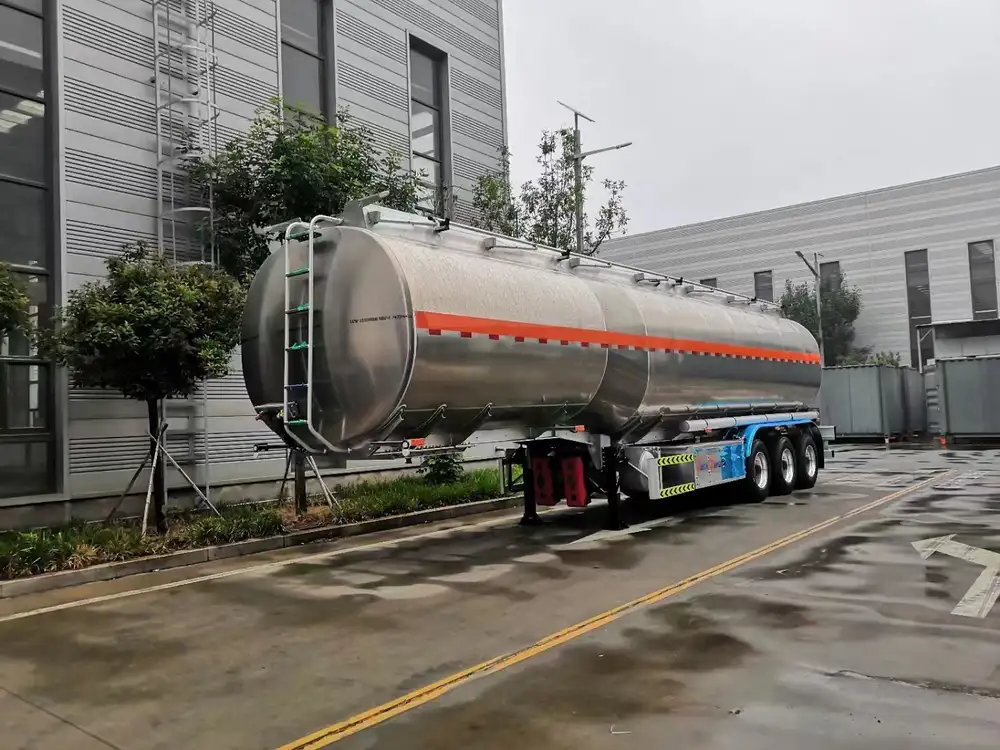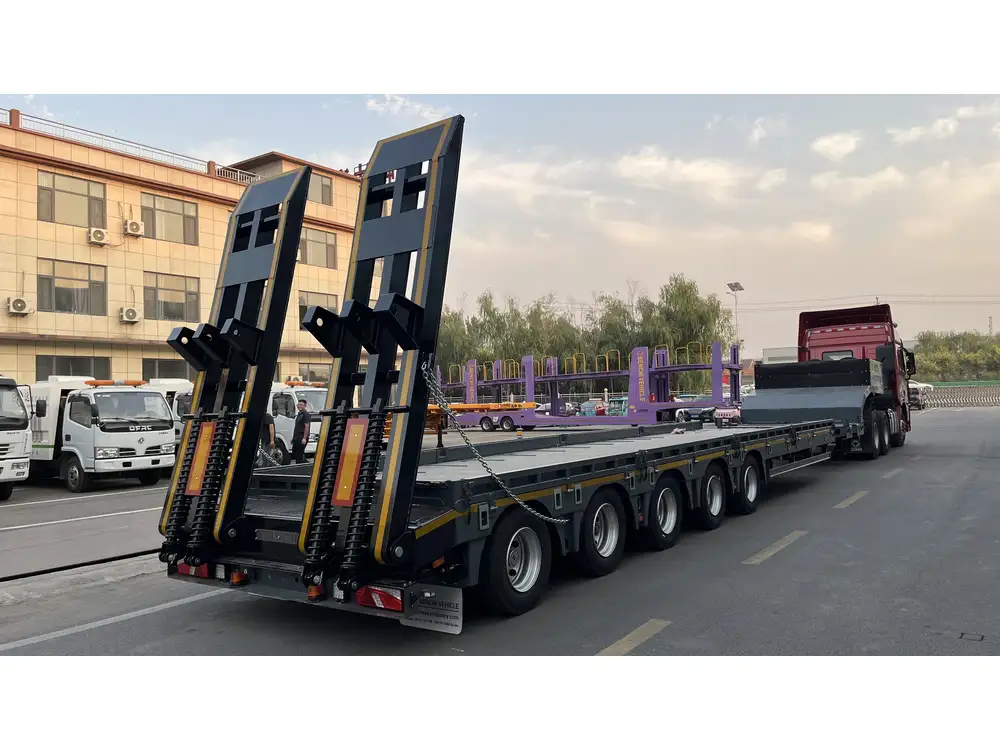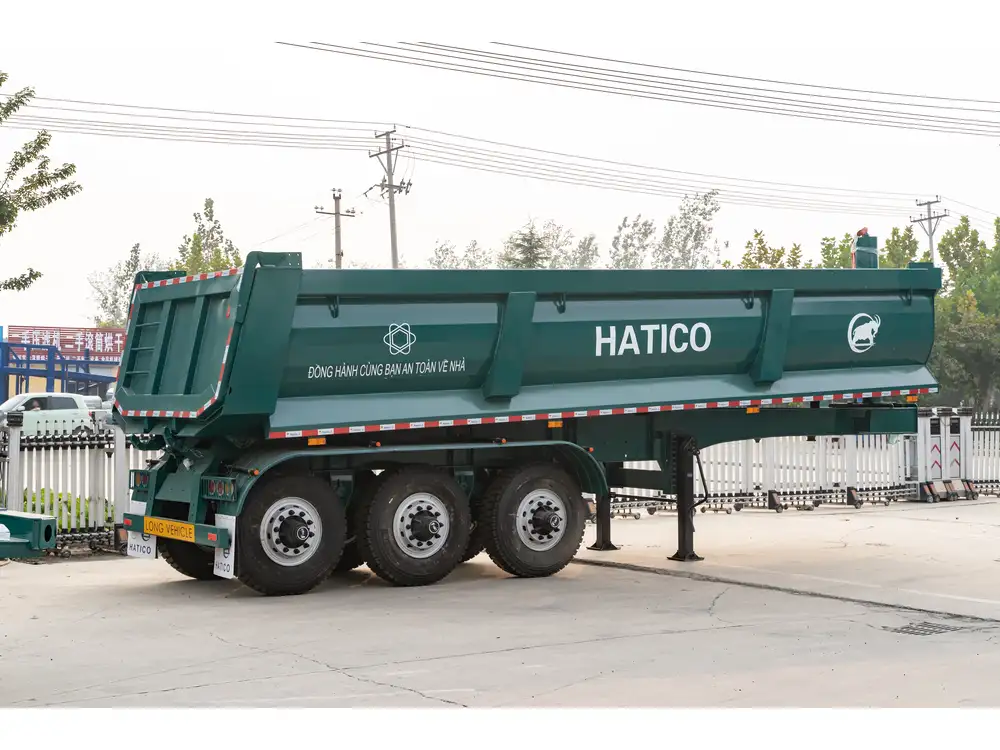When it comes to transporting water efficiently and safely, water tank trailers are an invaluable piece of equipment. This article delves deep into the intricacies of water tank trailers, exploring their functionalities, applications, types, and the benefits they offer to various industries.
What is a Water Tank Trailer?
A water tank trailer is a specially designed vehicle used to transport large volumes of water from one location to another. It is typically mounted on a chassis with wheels, making it easy to maneuver, and features a tank that can hold various capacities of water ranging from a few hundred to several thousand gallons.
Here’s a breakdown of what makes these trailers essential:
- Tank Material: Most water tank trailers are constructed from durable materials such as steel or polyethylene, which prevent corrosion and leakage.
- Design Features: Many trailers come with features like baffles for stability during transport, along with pumps and hoses for easy water dispensing.
- Mobility: Equipped with a hitch for towing by vehicles, these trailers can be easily moved to various job sites or locations.
The Functionality of Water Tank Trailers

Key Functions
Water tank trailers serve multiple functions, making them versatile assets in various industries:
| Function | Description |
|---|---|
| Transportation | Safely transports potable and non-potable water, making it essential for many applications. |
| Dispensing | Equipped with pumps and hoses to dispense water directly onto areas like fields, construction sites, or fire scenes. |
| Storage | Provides a temporary water storage solution in locations without permanent plumbing infrastructure. |
| Emergency Supply | Acts as a critical resource during emergencies, such as disasters or droughts, ensuring access to water. |
Different Applications of Water Tank Trailers
The diverse utility of water tank trailers spans across numerous sectors:
1. Agriculture
In agriculture, water tank trailers are crucial for irrigation purposes. Farmers utilize these trailers to transport water to dry fields, ensuring crops receive the necessary hydration. The ability to easily attach to tractors or trucks allows them to cover large areas efficiently.

2. Construction Sites
Construction projects often require significant water usage for tasks such as dust control, mixing concrete, and site cleaning. Water tank trailers provide a reliable water supply, minimizing downtime and maintaining construction progress.
3. Fire Fighting
In rural areas, access to hydrants might be limited. Fire departments utilize water tank trailers to carry water to the scene of a fire, allowing them to tackle flames effectively until more extensive resources arrive.
4. Events and Festivals
These trailers are also used during large events, such as festivals or outdoor gatherings, where a temporary water supply is critical. They can provide drinking water, sanitation facilities, and water for cooling and cleaning.

Types of Water Tank Trailers
Choosing the right water tank trailer depends on the specific requirements of various applications. Below is a comparison of the prevalent types available in the market:
| Type | Description | Ideal Use Case |
|---|---|---|
| Above-Ground Tanks | Frequently made of plastic or metal, these tanks are portable and sit on the trailer’s frame. | Ideal for temporary or rural water supply. |
| Fire-fighting Tanks | Often equipped with pumps and hoses specifically designed for combating fires. | Best for emergency fire responses. |
| Flatbed Tank Trailers | These trailers allow for easy loading of water tanks and other equipment. | Excellent for construction and agricultural use. |
| Utility Water Trailers | These are designed for multiple tasks, often coming with accessories like generators. | Multi-functional for events or maintenance. |
Essential Features to Look For
When investing in a water tank trailer, it’s important to consider several features that can enhance functionality:
- Capacity: Ranging from 500 to 5,000 gallons or more.
- Material: Common materials include Polyethylene (for resistance to UV light) and fiberglass, which are light yet sturdy.
- Pump Quality: A high-quality pump can drastically increase efficiency in water dispensing.
- Hoses and Nozzles: Versatile hoses and adjustable nozzles can help cater to specific watering needs.
- Mobility Accessories: Look for features like easy towable hitches and sturdy tires for off-road suitability.
Regulations and Considerations

Licensing and Compliance
Depending on local laws, it might be necessary to adhere to specific regulations regarding the transportation of water. Always check:
- Local water quality standards: For transporting potable water, ensure the tank meets health and safety guidelines.
- Traffic regulations: Some jurisdictions may require a special license for towing larger trailers.
Maintenance Tips for Water Tank Trailers
Proper maintenance extends the life of your water tank trailer. Here are essential practices:
- Regular Cleaning: Ensure the tank is cleaned periodically to avoid algae growth or contamination.
- Inspecting for Leaks: Regularly check valves and connections for any signs of wear and tear.
- Tire Maintenance: Keep an eye on tire pressure and tread to maintain safe towing conditions.
Economic Benefits of Water Tank Trailers
Investing in water tank trailers can lead to considerable economic advantages:
- Operational Efficiency: The ability to transport large volumes of water saves time and labor costs.
- Reduced Downtime: When emergencies arise, having immediate access to water can prevent project delays or losses.
- Versatility: Their capability to serve multiple functions allows companies to reduce overall equipment costs by minimizing the number of vehicles needed.

Common Questions About Water Tank Trailers
How do I determine the right size water tank trailer for my needs?
- Consider the primary applications you intend to use it for, the frequency of use, and the distances you will be traveling.
Can I use a water tank trailer for different types of liquids?
- While primarily designed for water, certain models can handle other non-corrosive liquids. Always consult the manufacturer’s specifications.
Are water tank trailers safe for drinking water?
- If using for potable water, ensure that the materials and fittings comply with local health codes and standards.
What is the average lifespan of a water tank trailer?
- With proper maintenance, a well-built water tank trailer can last over a decade.
Conclusion
Water tank trailers are vital assets across various industries, from agriculture to emergency response. By understanding their functionality, types, regulations, maintenance needs, and economic benefits, you can make informed decisions that meet your water transport needs effectively. Whether you’re looking to enhance efficiency on a construction site, provide water for agricultural use, or respond to emergencies, investing in a high-quality water tank trailer is a decision that promises to yield long-term benefits.
By equipping yourself with the right knowledge and tools, you can leverage the full potential of water tank trailers and ensure they serve you as reliable partners in any task requiring water transport.



